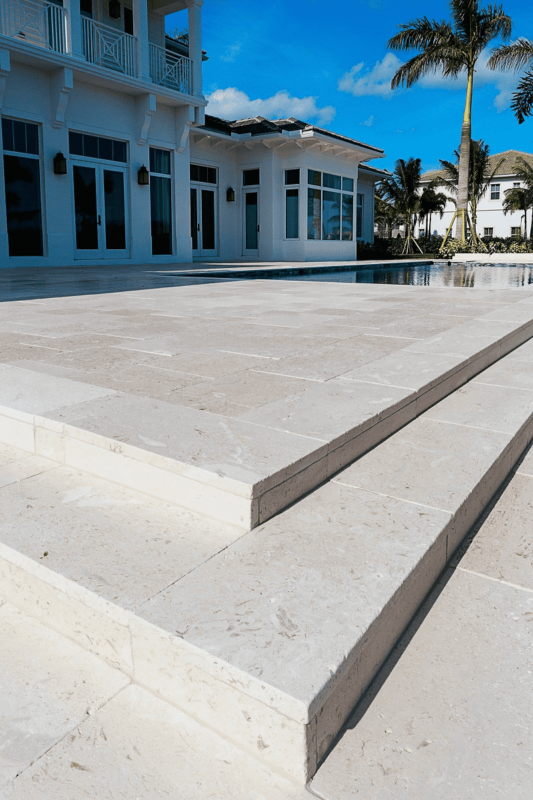So, what is a travertine grade?
Formed near hot springs and limestone caves, travertine pavers are a natural stone. Formation are the reaction of natural minerals and water, needing a very specific environment. It is quite a rare natural occurrence which takes time to occur and complete. Created around formations, tiles and pavers are later produced in stone quarries. The vast majority of travertine used within Australia is sourced from Turkey or Italy, where it is in abundance.
Being a natural product, not every slab of stone is formed equally. Therefore, there are a number of grades of travertine available. Grades of travertine are determined by the appearance and the presence of pores within the stone. Travertine blocks with less pores will be considered a premium grade, like these Ivory French Pattern tiles. Whereas more pores and a sponge-like appearance is considered to be that of commercial grade, like this Rustic 30mm pavers.
The vast majority of natural travertine suppliers will source and sell a Standard Grade (which is happy medium between the commercial and premium grades), a popular choice is the Silver Travertine tiles in the standard grade. This is more than suitable for the majority of home owners and builders because the air holing is easily filled with grout during the labour process (which helps keep your area clean), and the strength and durability of the stone is high, meaning the labour process should be seamless.
The grading of your stone can heavily affect your project – with budget to be an important factor. We’ve made this guide to help you budget the labour and stone price of your paving here.
Alternatives to Travertine Pavers.
If travertine pavers don’t seem like quite the right option for you, there are some alternatives to travertine pavers:
- Travertine tiles – Excellent as an option for covering an existing slab; tile thickness is 12mm in comparison with pavers’ thickness of 30mm.
- Sandstone tiles and pavers – Numerous finishes are available at a generally low material costs; making it an excellence choice for updating on a tight budget. View our sister companies range.
- Granite pavers – Also created of natural materials; costs are generally similar, but the stone has no air holing. Generally regarded to be stronger than Travertine, but the style is very different, with colour tones and textures comparable to concrete.View our sister companies range.
- Bluestone pavers – A modern finishes, with an often smooth sawn aesthetic. A darker colour in comparison to the range of Travertine colours, with little to no alternatives than a grey-charcoal tone. View our sister companies range.

